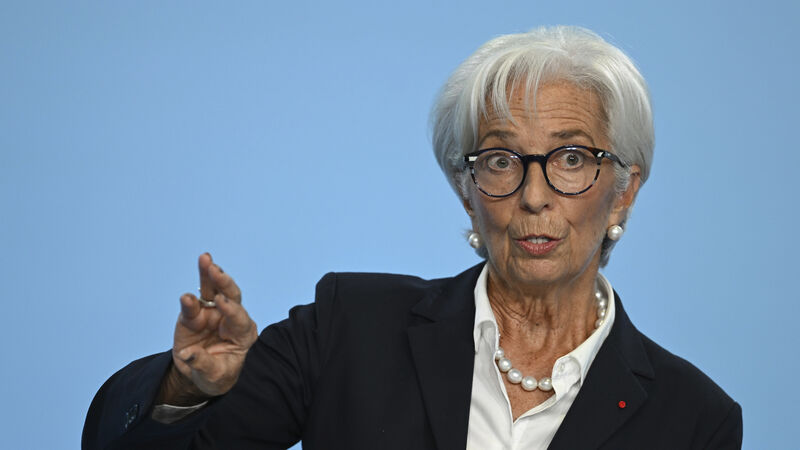Oliver Mangan: This week could mark the end of the large interest rate hikes

Christine Lagarde, president of the European Central Bank, made direct reference to recession risks as something the central bank would take into consideration in deciding on monetary policy given the impact this would have on the future path of inflation.
It would appear that the marked slowdown in the pace of global activity and growing risks of recession are beginning to weigh on the policy deliberations of central banks, despite continued very elevated readings for inflation.
Both the Reserve Bank of Australia and Bank of Canada delivered smaller-than-expected rate hikes at their recent monetary policy meetings.














